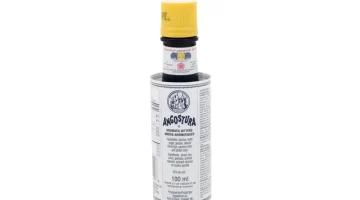How to Start Your Own Distillery
The Microdistillers’ Handbook tells you all you need to know about how to start your own distillery including learning the skills and finding the equipment.

Read This First
This is the second edition of The Microdistillers’ Handbook, first published in 2018, which shows that how to start your own distillery is something people want to know. This book, edited by Gavin D. Smith and in the same series as The Microbrewers’ Handbook, will tell you everything you need to know, including where to acquire the skills and the equipment. There are also twelve case studies of people who have done it already, to inspire you on your way.
How to Start Your Own Distillery at Home
Although the book is aimed at those who want to start their own distillery on a commercial basis, and want to distribute and sell their spirits, if you simply want to start your own distillery at home, you’ll still get a lot out of it. The distilling business is a tangled web, and you need to know about licensing, and what you legally can and cannot do.
It should be pointed out from the start that this book is published in the UK and deals with the UK rules and regulations, and not those in the USA… which are even more complicated!
What Does It Cost to Start Your Own Distillery?
If you plan on home distilling, it’s cheap enough to start. You can buy a simple still on Amazon for under £100, although there are more sophisticated ones available for several hundred pounds. However, if you want to start a commercial distillery the book points out that even a small-scale whisky distillery will set you back at least £150k.
And that’s just to get started. Whisky has to age for at least three years before you can legally call it whisky, and to get that stage you’ll need about ten times your initial investment. This is why new distillers often start by making vodka and gin, which don’t need to age, and can start bringing in revenue to begin to offset the initial investment.
Case Studies
 One very helpful aspect of the book which will interest all would-be distillers, is the inclusion of twelve case studies of people who have been there and done that. These include companies who I’ve written about on Travel Distilled, such as Spirit of Yorkshire and others including The Cotswolds Distillery, The Winchester Distillery, Ballindalloch, and Adnams.
One very helpful aspect of the book which will interest all would-be distillers, is the inclusion of twelve case studies of people who have been there and done that. These include companies who I’ve written about on Travel Distilled, such as Spirit of Yorkshire and others including The Cotswolds Distillery, The Winchester Distillery, Ballindalloch, and Adnams.
It’s a broad range of backgrounds, with people who started from scratch, and a company like Adnams, which was already a large-scale brewery that decided to expand into distilling. What would be even more informative would be to include some failures along with the success stories, to add a cautionary note, but they’d be a bit harder to find!
Useful Organisations and Other Lists
If you’re thinking of starting your own distillery it’s important to know that you won’t be alone. The book includes a list of Useful Organisations, like The British Distillers Alliance, The Scottish Distillers Association, The Gin Guild, and more. So no matter where you live or what spirits you want to distil, there’s someone to turn to for help and advice.
There are lots of other useful lists in the book as well. These cover things like where you can learn your distilling skills, and where to buy the equipment you need – that’s assuming you’re beyond the ‘buy it off Amazon’ stage!
Definitions
 Before getting going, though, you need to do your homework, and the book helps with a series of definitions. Are you familiar with the Scotch Whisky Regulations 2009? Do you know what a grain spirit is? Do you know the difference between gin, distilled gin, London gin, and sloe gin? Well, you will once you’ve studied this book.
Before getting going, though, you need to do your homework, and the book helps with a series of definitions. Are you familiar with the Scotch Whisky Regulations 2009? Do you know what a grain spirit is? Do you know the difference between gin, distilled gin, London gin, and sloe gin? Well, you will once you’ve studied this book.
Training
Rather than have to face doing everything solo, this handbook tells you where you can go for training. This could be a recognised qualification, such as you’d get from attending the Herriot Watt University in Edinburgh, or less formal training, like visiting one of the many gin schools that various distilleries operate.
Other Topics
There’s far too much in this 176-page book to go into everything in detail, but it covers other topics such as financing, labelling (very important to know about), licensing, and how to get your spirits to the market. The book also covers exporting, how to use social media, and the importance of a blog. Finally there’s an extremely useful Directory of Services and Supplies.
In short, this is an excellent book if you want to know how to start your own distillery. It’s more useful for those who want to do it commercially rather than just try your hand at home, though I haven’t yet come across a book that focuses on that, so in the meantime this will get you started.












